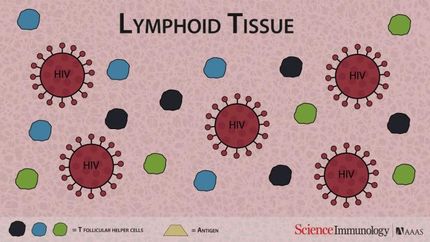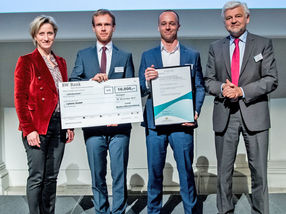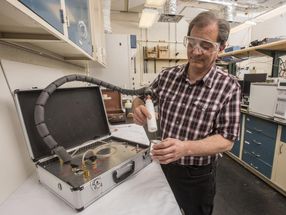EMA recommends authorisation of first medicine for Castleman's disease
The European Medicines Agency's Committee for Medicinal Products for Human Use (CHMP) has recommended the granting of a marketing authorisation for Sylvant (siltuximab), a medicine for the treatment of adult patients with multicentric Castleman’s disease who are human immunodeficiency virus (HIV) negative and human herpesvirus‑8 (HHV‑8) negative.
Castleman’s disease is a rare disorder characterised by non-cancerous growth of the lymph nodes and related tissues. In affected patients, cells in lymphatic tissue start proliferating, mainly causing abnormally large lymph nodes. In the majority of cases, the disease is localised and affects only one lymph node, but in some cases the disease is systemic (affects the entire body) and affects several lymph nodes as well as other organs in the body (multicentric). Affected patients have an increased risk of infection, kidney failure and certain cancers. Castleman’s disease is chronically debilitating and life threatening, especially for patients with more than one affected lymph node.
There are currently no medicinal products authorised in the European Union (EU) for the treatment of Castleman’s disease. In the absence of authorised treatments available to reduce the tumour burden in these patients, prognosis remains poor with fatal outcomes reported. In clinical trials, Sylvant has shown its ability to reduce tumour burden and improve the symptoms of the disease with a safety profile that is considered to be manageable with appropriate risk minimisation measures.
Sylvant has been developed using the incentives put in place by the orphan legislation. It was designated as an orphan medicine in 2007. At that time, it was estimated that Castleman’s disease affected less than 1 in 10,000 people in the EU. This is equivalent to a total of fewer than 50,000 people. The Agency gave free scientific advice to the applicant during the development of the medicine. Orphan designation and the associated incentives such as free scientific advice or ‘protocol assistance’ are among the Agency’s most important instruments to encourage the development of medicines for patients suffering from rare diseases.
Sylvant was evaluated by accelerated assessment, a regulatory tool to help speed up patient access to new medicines where there is an unmet medical need. Companies can request accelerated assessment provided they are able to demonstrate that their product responds to unmet medical needs or constitutes a significant improvement over the available methods of prevention, diagnosis or treatment of a condition.
The CHMP opinion on Sylvant will now be sent to the European Commission for adoption of a decision on an EU-wide marketing-authorisation.
Other news from the department politics & laws

Get the life science industry in your inbox
From now on, don't miss a thing: Our newsletter for biotechnology, pharma and life sciences brings you up to date every Tuesday and Thursday. The latest industry news, product highlights and innovations - compact and easy to understand in your inbox. Researched by us so you don't have to.

















































